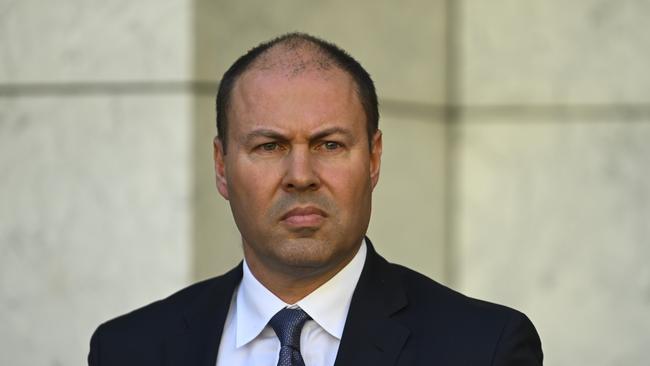Treasurer shuts down universities’ JobKeeper loophole
La Trobe University is “very disappointed” the government has again toughened the JobKeeper access rules for universities.

Treasurer Josh Frydenberg has shut down a JobKeeper loophole that La Trobe University was planning to use to apply for JobKeeper funds worth about $50m.
In a statement on Friday evening, Mr Frydenberg said the core government grants given to universities to fund courses would be considered part of university turnover when testing eligibility for JobKeeper, which will allow the government to reject the basis of the La Trobe application.
In response, La Trobe said it was “very disappointed the application criteria (for JobKeeper) have changed again”.
Read more: La Trobe seeks $50m aid | Unis will pull through | CQU eyes campus closure |Digital education here to stay | Time to tear down research walls | Get ready for new normal
“By applying for JobKeeper, we acted in good faith by following the published ATO guidelines,” the university said in a statement. “JobKeeper was set up to help protect jobs and by moving the goalposts a second time, this will cost jobs in universities.”
Until Friday’s announcement from the Treasurer, La Trobe believed Australian Taxation Office guidelines allowed it to exclude government grants, worth hundreds of millions of dollars annually, from the JobKeeper revenue test, which is based on GST turnover.
“GST turnover” has a strict definition in tax law and does not include government grants.
Omitting the grants, which are relatively stable from year to year, makes universities’ percentage decline in revenue this year significantly larger. With annual turnover of less than $1bn, La Trobe needed to show a drop of at least 30 per cent.
This is the second change the government has made to JobKeeper guidelines to prevent universities from easily accessing the scheme. Three weeks ago the government said it would exclude universities from a special provision which gave registered charities (a category which includes universities) easier access to JobKeeper.
However, two other universities, Sydney and Murdoch, say they believe they are eligible for JobKeeper assistance, even when including government grants in their turnover.
University of Sydney vice-chancellor Michael Spence wrote to staff on Friday saying he believed “the university was eligible to receive funding under this (JobKeeper) scheme”.
JobKeeper rules specify that a billion-dollar-plus organisation such as the University of Sydney must show a 50 per cent fall in GST turnover in either the first quarter of the year, or a single month from March onwards, to be eligible.
The university told The Weekend Australian that “during one of the relevant periods of time”, it had calculated a GST turnover reduction of more than 50 per cent.
“Whether or not government grants are included in the GST turnover calculation, the university meets the JobKeeper turnover test requirements,” it said.
In his email, Dr Spence asked staff to nominate for JobKeeper with the ATO, a necessary step to receiving the funding. He said that if most eligible staff did so, the university could receive between $100m and $140m of funding.
Murdoch University said about 1000 of its staff had nominated for JobKeeper so far, following an emailed request on Wednesday.
The university said its analysis showed its 2020 turnover, including government grants, had fallen by more than 30 per cent on a month-on-month basis compared with last year.
“The application has the potential to subsidise as much as $30m of our wage bill over the next six months,” it said.

The University of Sydney’s confidence in applying for JobKeeper is a surprise because its announced budget shortfall this year is $470m, which, compared to last year’s revenue of about $2.6bn, does not suggest it would meet the threshold of 50 per cent turnover loss.
However, because the university’s main source of revenue loss this year was international student fees, the loss was probably concentrated in a short period of time, during which it accounted for a high proportion of revenue.
On Friday Queensland University of Technology said it expected a revenue loss about $100 million in 2020 due to COVID-19.
QUT vice-chancellor Margaret Sheil said it was inevitable that significant revenue loss would continue until 2023, and that the university’s response was centred around providing best-practice online learning and maintaining jobs.
The university has paused major capital works developments, including on its Law and Social Justice Precinct at the Gardens Point campus.




To join the conversation, please log in. Don't have an account? Register
Join the conversation, you are commenting as Logout